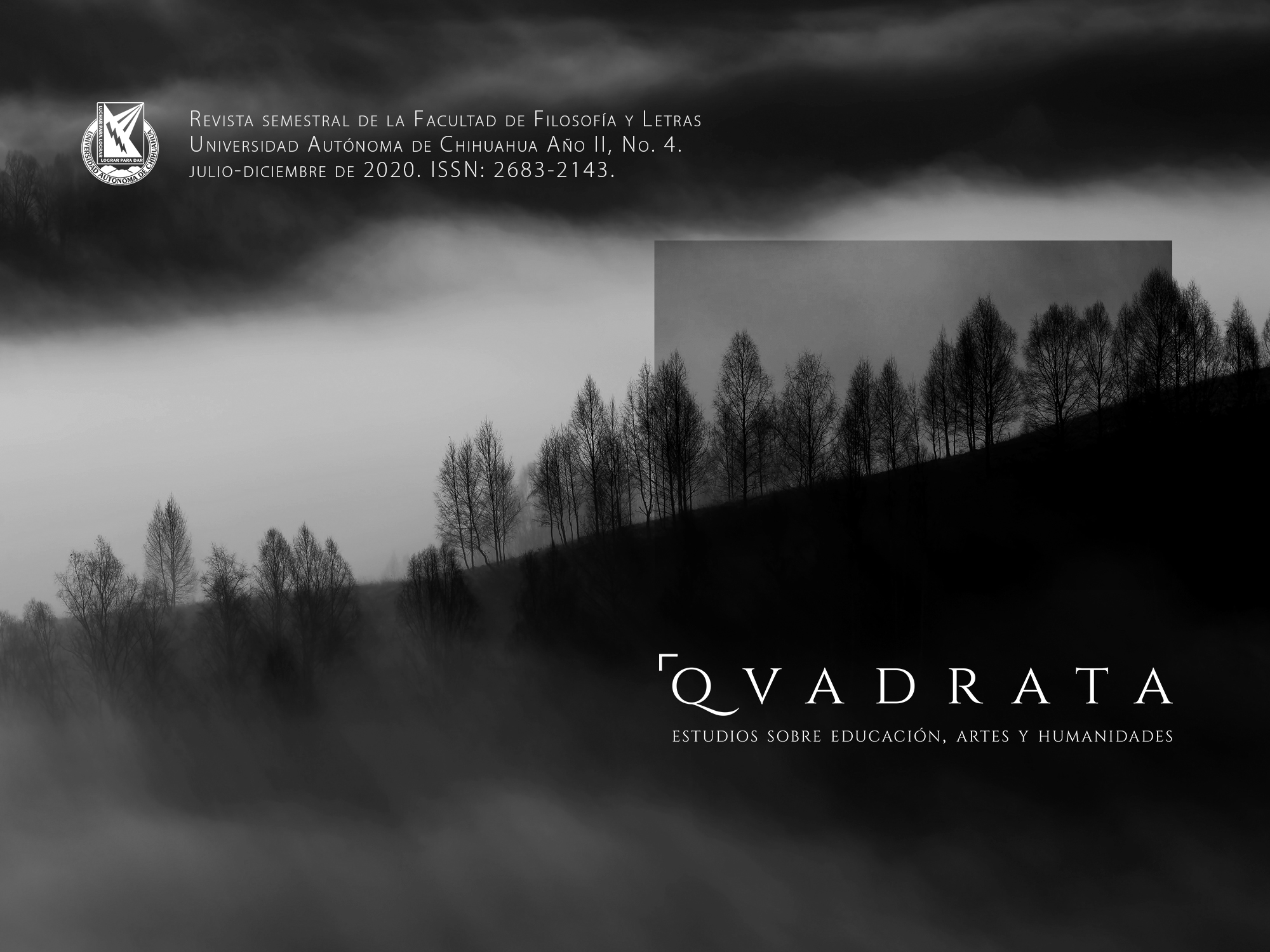The body and the teaching of architecture
An approach to understanding the relationship between the student body and university education
DOI:
https://doi.org/10.54167/qvadrata.v2i4.777Keywords:
Biopolitics, Higher education, Cognitive capitalism, Architecture, Disciplined bod, Disciplined bodiesAbstract
The relationship between the sensitive body and the intellect at times is conflicted in contemporaneity, to the point that only the intellectual / rational relationship of things tends to prevail, over values and knowledge related to the senses and intuition. This break is due to multiple reasons that are identified in this text from before the industrial revolution to today. This look is drawn from philosophy, from sociology, as well as from theory in architecture. It is also necessary to mention that the school system, as well as the spaces where they live, is also influencing the standardization and training of the bodies. It is also necessary to mention that the school system, as well as the spaces where they live, are also influencing the standardization and training
of the bodies. This phenomenon becomes patent when they enter the University, which is intended to be attacked in the architecture school through a series of academic exercises that would return values such as time, the relationship of the intellectual body with the sensitive body in function of establishing integral bodies for the proper development of the profession of architect.
References
Arendt, Hannah (2016) La condición humana. Paidós. Buenos Aires—. (1996) Entre el pasado y el futuro. Ediciones peninsula, Barcelona
Attick, Dennis (2017) Homo Economicus at School: Neoliberal Educa-tion and Teacher as Economic Being. en : Educational Studies, 02 january 2017, vol.53(1), pp.37-48
Augé, Marc (2000) Non-places. Verso, London
Blackman, Liza (2008) The Body: The Key Concepts. Berg, New York
Colomina, Beatriz (2007) Domesticity at War. mit Press
Debord, Guy (1995) La sociedad del espectáculo, Ediciones naufragio, Santiago de Chile
Deleuze, Gilles (2006), Post-scriptum sobre las sociedades de control, Polis. Revista latinoamericana 13
Donzelot, Jaques (1998) Policía de las familias. Editorial nueva visión, Bue-nos Aires —. La conservación de los hijos. fuente : oea, http://iin.oea.org/cursos_a_dis-tancia/la_conservacion_de_los_hijos.pdf
Esposito, Roberto (2005), Inmunitas, Amorrortu editores, Buenos Aires
Evans, Robin, Translation From Drawing to Building (2002) Aabooks, London
Foucault, Michel (2012), Vigilar y castigar: nacimiento de la prisión. Biblio-teca nueva. España
Han, Byung-Chul (2014) Psicopolítica. Herder, Barcelona
Heidegger, Martin. (2005) Qué significa pensar. Editorial Trotta, Madrid.—. (2002) Serenidad. Ediciones del Serbal, Barcelona
Platón (1871) Fedón , en: Obras completas. Medina y Navarro, Editores, Madrid
Raposo, Alfonso (2009). Vivienda social. la obsolescencia de las maquinas de regulación social. antología. en: Revista electrónica DU&P. Diseño y Paisaje. volumen vi, nº18, Universidad Central de Chile, Santiago
Riobó, Enrique; Villaroel Francisco (2019) Belleza plástica, eugenesia y educación física en Chile: presentación de la fuente “aspectos de la educación física”, de luis bisquertt (1930) en: https://www.scielo.br/scielo.php?script=sci_arttext&pid=s0104-59702019000200673
Román, Juan et al. (2013). Talca , cuestión de educación. Arquine, Ciudad de México.
Rowe, Peter (1995) Modernity and Housing, The mit Press, Cambridge Massachusets
Sennet, Richard (2017). El artesano, Editorial Anagrama, Barcelona.
Taige, Karel. The Minimum Dwelling (2002) mit Press
Tapia, L., García Linera, A., Vega , O., Orada, R. (2010) El Estado. Campo de lucha, Muela del Diablo Editores, La Paz, Bolivia
Vega, Eugenio (2016) La construcción de la Bauhaus como referente cultural. Revista Infolio, julio 2016, nº 6 .en: http://www.infolio.es/06in-folio/bauhaus/bauhaus.htm
Virilio, Paul. (1997) El cibermundo, la política de lo peor . Ediciones Cátedra. Madrid
Yanez, Javier. (2018) La era de la eugenesia: cuando la pseudociencia se hizo ley. en: https://www.bbvaopenmind.com/ciencia/biociencias/la-era-de-la-eugenesia-cuando-la-pseudociencia-se-hizo-ley/





 QVADRATA. Estudios sobre Educación, Artes y Humanidades año V, número 9, enero-junio de 2023, es una publicación semestral editada por la Universidad Autónoma de Chihuahua. Calle Escorza #900. C.P. 31000, Chihuahua, Chih. Tel. (614) 439-1500 ext. 3844,
QVADRATA. Estudios sobre Educación, Artes y Humanidades año V, número 9, enero-junio de 2023, es una publicación semestral editada por la Universidad Autónoma de Chihuahua. Calle Escorza #900. C.P. 31000, Chihuahua, Chih. Tel. (614) 439-1500 ext. 3844, 
